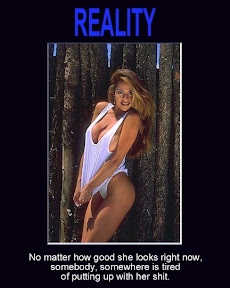On the Net:

http://bestestblogofalltime.blogspot.com/2006/10/bestest-blog-of-day-10072006.html
SHIT
Keshi didnt qualify
Three things in life that, once gone, never come back -
>
>
> Time
>
> Words
>
> Opportunity
>
>
>
>
>
>
>Three things in life that may never be lost -
>
>
> Peace
>
> Hope
>
> Honesty
>
>
>
>
>
>
>
>Three things in life that are most valuable -
>
>
> Love
>
> Self-confidence
>
> Friends
>
>
>
>
>
>
>
>Three things in life that are never certain -
>
>
> Dreams
>
> Success
>
> Fortune
>
>
>
>
>
>
>
>Three things that make a man/woman -
>
>
>
> Hard work
>
> Sincerity
>
> Commitment
>
>
>
>
>
>
>
>Three things in life that can destroy a man/woman -
>
>
> Alcohol
>
> Pride
>
> Anger
>
>
>
>
>
>
>
>
>
>Three things in life that, once lost, hard to build-up -
>
>
>
>
>
>
> Respect
>
> Trust
>
> Friendship
>
>
>
>
>
>
>
>
>Three things in life that never fail -
>
>
>
>
>
>
> True Love
>
> Determination
>
> Belief
>
>
>
>
>
>
>
>
>
>
>"To love without condition,to talk without intention,to give without
>reason, and to care without expectation....is the heart of a true
>friend.... "
Some Realties of Life
------------------------------------------------------------------------------
>"U love someone U marry someone else. The one u marry becomes ur wife
or husband. And the one u loved becomes the password of ur mail id"
> >
> >
> >---------------
> >
> >
> >There's only one perfect child in the world & every mother has it.
> >There's only one perfect wife in the world & every neighbor has it.
> >
> >
> >---------------
> >
> >
> >Three dreams of a man:
> >To be as handsome as his mother thinks.
> >To be as rich as his child believes.
> >To have as many women as his wife suspects...
> >
> >
> >---------------
> >
> >
> >Husband & wife are like liver and kidney. Husband is liver & wife kidney.
> >If liver fails, kidney fails. If kidney fails, liver manages with other kidney.
> >
> >
> >
> >---------------
> >
> >
> >What's the diff between Dava &d Daru?
> >Dava is like girlfriend, that comes with expiry date and
> >Daru is like wife, Jitni purani hogi utna sir chad ke bolegi.
> >
> >
> >---------------
> >
> >
> >The Japanese have produced a camera that has such a fast shutter speed
>it
> >can take a picture of a woman with her mouth shut
> >
> >
So, it's your first kiss and several questions might come to mind:
Is it the right time?
Is anyone watching?
Does your partner even want to?
Is your breath fresh?
And the big question...
Should you use some tongue?
Then you lean in and just go for it!!!




























15 comments:
OMFG THat is soooooo cute.
Just too darn CUTE!
Margie
too cute for words.
*blush* thanx saby!
:)
3 tings is a forward from Babu
click on 2tings for images
click on 3tings
Good one there saby!
Keshi's blog is accepting comments now Saby!
Have a nice weekend!
Margie
Damn cute...
How to Understand Soccer Referee Signals
You're glued to the game, and your psychological well-being hinges on your favorite team scoring the winning goal. It's then that you realize that the fate of the game rests in the referee's hands--literally! Since the referee is a critical part of a game of soccer, responsible for keeping order and enforcing the rules, it's crucial for the true soccer fan to be able to decipher what he's seen and what he wants. Here's a crash course on "Refereese."
Steps
Listen for the whistle. A referee who blows his whistle has seen something, most often a foul, which requires him to immediately terminate play and deal with the situation. The whistle tone will often indicate the nature of the foul. A short, quick whistle indicates a lesser foul only punished by a free kick, and longer, harder blasts indicate serious fouls punishible by cards or penalty kicks.
Signal for advantageWatch for the advantage. A referee who, without blowing his whistle, points both arms out, has seen a foul but has decided to play advantage. In advantage, the referee delays the call because he believes that the fouled team still has the advantage in the situation. Typically the referee will give around 3 seconds to determine who comes out on top. If, at the end of the 3 seconds, an advantage was gained by the fouled team, such as posession being kept or a goal being scored, the foul will be ignored by the referee. If the foul warranted a card, however, he will show the card at the next stoppage in play.
Signal for a direct free kickWatch for direct free kicks. A referee who points with his arm straight at a 45 degree angle up is signaling for a direct free kick, or DFK. A DFK is awarded when one of the players commits one of the ten penal fouls against an opponent. A goal may be scored from a DFK.
Signal for an indirect free kickWatch for indirect free kicks. A referee who points with his arm straight at a 45 degree angle up and then raises his hand above his head is signaling for an indirect free kick, or IFK. An IFK is awarded for any foul not falling under the category of penal foul, or a foul which is not committed against opponents. A goal may not be scored from an IFK until it has touched another player. When signalling for an IFK, the referee will keep his hand up until the ball has been touched by another player and a goal may now be scored or until the ball has gone out of play.
Watch for the penalty kick. A referee who points directly to the penalty spot, or the spot halfway between the penalty area line and goal area line, is indicating that a player has committed a DFK offense within his own penalty area and a penalty kick has been issued.
Showing the yellow cardWatch for the yellow card. A referee who shows a player a yellow card is indicating that the player has committed one of the seven cautionable offenses. A player who is issued a yellow card is noted by the referee, and if a second yellow card is issued, the player is sent off.
Watch for the red card. A referee who shows a player the red card is indicating that the player has committed a serious offense, one of the seven "deadly sin" send-off offenses, and must leave the vincinity of the field of play immediately (in professional matches, this most often means he heads to the changeroom).
Watch for other signals. A referee who points at the goal with his arm pointed downward is signaling for a goal kick. A referee who points at the corner flag with his arm pointed downward is signaling for a corner kick.
Tips
The ten fouls that may be punished by the referee with a direct free kick are:
kicking or attempting to kick an opponent
tripping or attempting to trip an opponent
jumping at an opponent
charging an opponent
striking or attempting to strike an opponent
pushing an opponent
tackling an opponent to gain possession of the ball, making contact with the opponent before touching the ball
holding an opponent
spitting at an opponent
handling the ball deliberately
The eight offenses for which the referee may award an indirect free kick are:
The goalkeeper takes more than six seconds while controlling the ball with his hands before releasing it from his possession
The goalkeeper touches the ball again with his hands after it has been released from his possession and has not touched any other player
The goalkeeper touches the ball with his hands after it has been deliberately kicked to him by a team-mate
The goalkeeper touches the ball with his hands after he has received it directly from a throw-in taken by a team-mate
Playing in a dangerous manner
Impeding the progress of an opponent
Preventing the goalkeeper from releasing the ball from his hands
Any other offense is committed for which play is stopped to caution or send-off a player
The referee will caution and show the yellow card to a player who:
is guilty of unsporting behaviour
shows dissent by word or action
persistently infringes the Laws of the Game
delays the restart of play
fails to respect the required distance when play is restarted with a corner kick or free kick
enters or re-enters the field of play without the referee’s permission
deliberately leaves the field of play without the referee’s permission
The referee will send-off and show the red card to a player who:
is guilty of serious foul play
is guilty of violent conduct
spits at an opponent or any other person
denies the opposing team a goal or an obvious goalscoring opportunity by deliberately handling the ball (this does not apply to a goalkeeper within his own penalty area)
denies an obvious goalscoring opportunity to an opponent moving towards the player’s goal by an offense punishable by a free kick or a penalty kick
uses offensive, insulting or abusive language and/or gestures
receives a second caution in the same match
Warnings
Do not ever attempt to challenge the referee, no matter what he signals for. In a game of soccer, the referee's calls are always right, no matter how wrong they may be.
Things You'll Need
a soccer game
a referee
Soccer ??
who the hell plays soccer in India?!!
.
saby~ I luv the 3 things post!
How very true!!!
...I'm still looking for a few of those things 2 fufill my life....
Patience is a virtue!
:)
Your 3tings post is wonderful!
love it!!!!
Margie
While away at a convention, an executive happened to meet a young woman who was pretty and intelligent. When he persuaded her to disrobe in his hotel room, he found out she had a superb body as well. Unfortunately, the executive found himself unable to perform.
On his first night home, the executive walked from the shower into the bedroom to find his wife covered in a rumpled bathrobe, her hair curled, her face creamed, munching candy loudly while she pored through a movie magazine.
Then, without warning, he felt the onset of a magnificent erection.
Looking down at this, he snarled, “Why you ungrateful, mixed-up son of a bitch. Now I know why they call you a prick!”
whoaaaaaaa congratts Starbender! :):)
Keshi.
Post a Comment